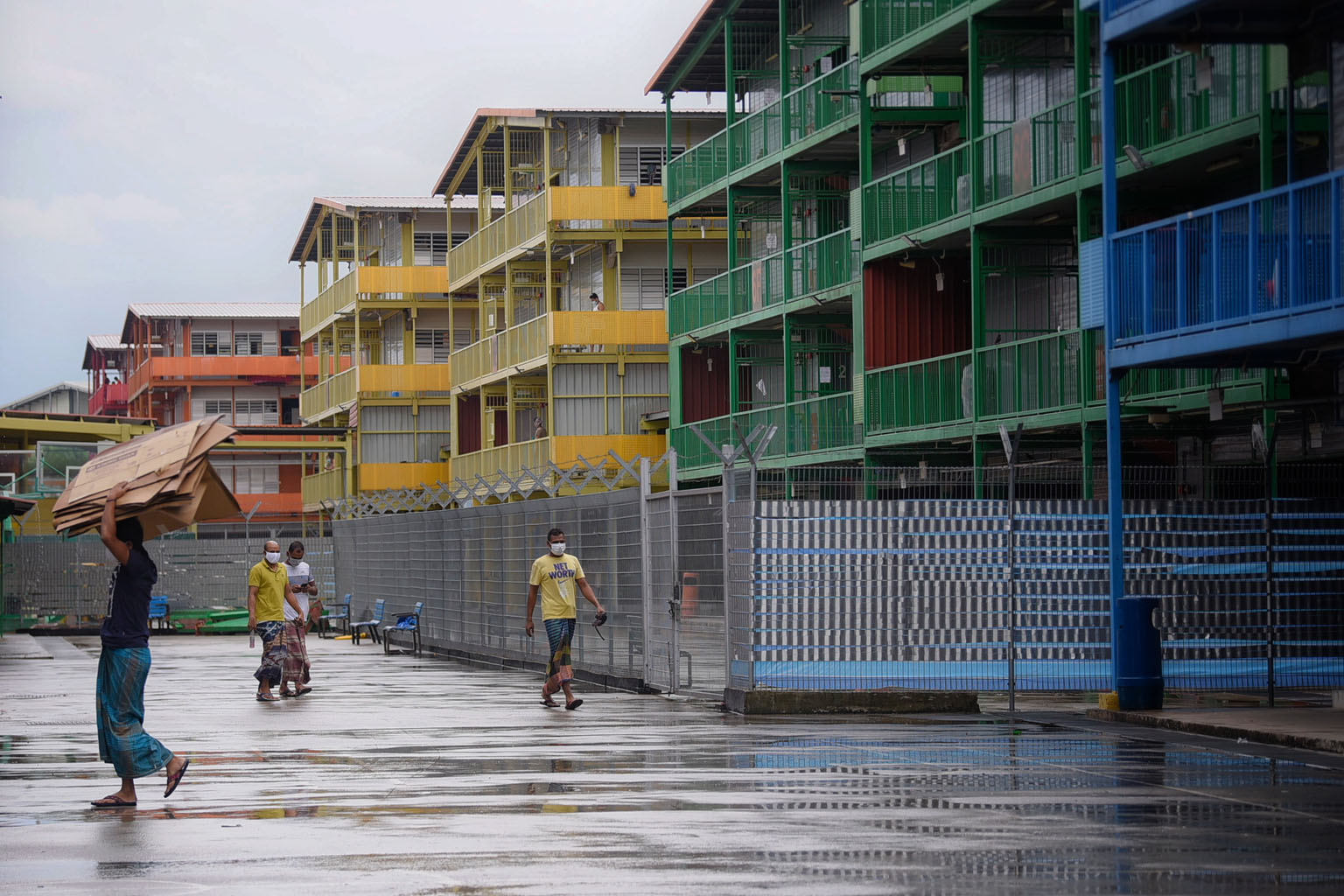askST: Why are there still reports of workers in dorms being infected with Covid-19?
Sign up now: Get ST's newsletters delivered to your inbox

Workers who previously tested negative for the coronavirus and are staying in cleared dormitories are susceptible to catching the virus, just like anyone else and new cases may arise among these workers.
ST PHOTO: MARK CHEONG
Q If the authorities have completed testing of all workers in dormitories, why are we still getting reports of workers being infected?
A The Ministry of Manpower (MOM) said on Tuesday that the testing of all migrant workers staying in dormitories has been completed. However, new infections among workers may be detected from two sources.
First, there were about 22,800 workers as of Wednesday who were still in isolation in centralised government quarantine facilities and in 17 standalone blocks in six purpose-built dormitories.
As the isolation periods for these workers come to an end, they will be tested, which may reveal new infections.
The Ministry of Health (MOH) has said that because of these tests, it expects the daily case counts to remain high before tapering off as more workers complete their isolation and test negative for the virus.
Second, workers who previously tested negative for the coronavirus and are staying in cleared dormitories are susceptible to catching the virus, just like anyone else. New cases may arise among these workers.
Q MOH announced on Wednesday night that 800 foreign workers had been quarantined after a new case was discovered among them in a cleared dormitory. How can just one case lead to 800 workers being quarantined?
A MOM said that if its monitoring picks up potential infections among the migrant workers, the inter-agency task force will quickly isolate and quarantine all at-risk workers within the block that housed the infected worker as a precautionary measure.
It added that "aggressive testing" would then be conducted to identify any further spread of the virus.
However, workers who have recovered from the virus for 90 days and less will not be isolated as current medical evidence suggests that they continue to have immunity.
Should they develop fresh respiratory symptoms, those who have recovered from Covid-19 more than 90 days ago from their original illness will be assessed as to whether they will require repeat testing and isolation.
Citing New Zealand's three-day lockdown in Auckland from Wednesday after four new coronavirus cases were confirmed, Professor Teo Yik Ying, dean of the National University of Singapore's Saw Swee Hock School of Public Health, said quarantining 800 workers after one infection was discovered among them was not an overreaction.
He said: "Quarantining possibly exposed workers until we understand the situation better is a very prudent strategy. Other measures that are being used to complement the quarantine are also just as important, like contact tracing or performing batch testing."
If such measures complemented the quarantine, Prof Teo said it is possible that a number of these 800 foreign workers may not need to serve a full 14-day quarantine.

Q If foreign workers are in my home to do renovations, is it safe?
A The short answer is yes. Multiple requirements have to be met before foreign workers can leave their dormitories for work.
So, if they have been approved to restart work, their dorms have to be cleared of Covid-19.
Various safe living measures to minimise mingling among groups at different worksites and workers staying in different dormitory blocks have been put in place. These measures minimise the potential spread of the virus among residents.
And of course, these workers must have either recovered or tested negative for Covid-19 before they can restart work.
Finally, workers have to download three smartphone apps, including the latest version of contract tracing app TraceTogether.
Workers also have to report their temperature and if they have any acute respiratory illness symptoms through FWMOMCare twice daily. They will receive medical attention and will not be allowed to report for work if they are unwell.
In addition, workers in higher-risk settings are tested regularly every 14 days. These include workers staying in dormitories and workers who work on-site in the construction, marine and process sectors.


